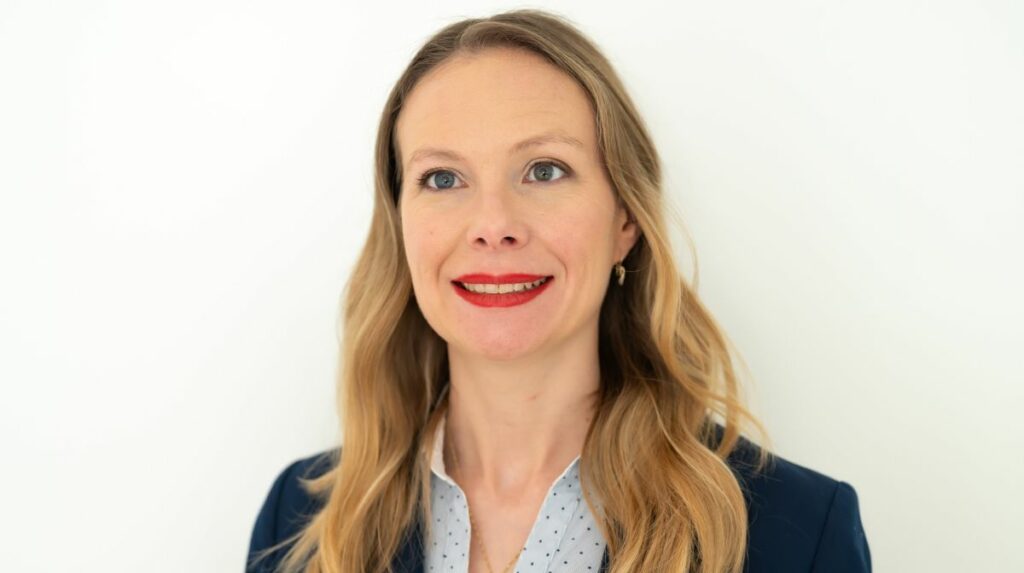Ludivine Doridot: making strides in endometriosis
Inserm researcher at the Cochin Institute, Ludivine Doridot is studying endometriosis, a gynaecological disease that affects around 10% of women and can lead to chronic pain and infertility. As part of a project funded by the European Research Council, she analyses the menstrual blood of patients to discover diagnostic and prognostic markers of the disease – but also new treatments.

In the vast field of biomedical research, Ludivine Doridot has set her sights on endometriosis. Caused by fragments of uterine mucosa present outside the uterus, this gynaecological disease leads to lesions on various pelvic organs (rectum, bladder, ovaries, etc.), generating inflammation, pain and fertility problems in around 40% of the women concerned. Despite being unknown to the general public only a decade ago, endometriosis affects around one in ten women of childbearing age. Which is one of the factors that prompted Doridot to devote her research to it. ‘There is a discrepancy between the frequency of this disease and what we know about it. Very little is known about its onset and mechanisms of progression. Future discoveries can therefore have a real impact for patients,’ she believes.
The young woman began to become familiar with the subject in 2009 while preparing her thesis on pre-eclampsia (a disease of the placenta) in a unit at the Cochin Institute in Paris: other members of the team were interested in endometriosis, which was still little studied at the time. Following that, she headed for the USA, where she completed a post-doc at a research centre affiliated with the Harvard Medical School in Boston. There she explored the role of fructose in metabolic syndrome, ‘a trendy and well-funded theme, but one that I wasn’t passionate about, she admits. Nevertheless, I learned to use many cutting-edge molecular analysis techniques.’ Upon her return to France in 2017, she wanted to return to women’s health.
Human cells
So she offered her services to the unit at Institut Cochin which researches endometriosis, and obtained a physiology lecturer position at Université Paris-Cité. Alongside her many teaching hours, her role in the unit became more prominent over the years. She worked on a mouse model of induced endometriosis, involving several important findings. For example, the researcher confirmed the role of immunity in the progression of the disease, which had been suggested in previous studies. Her career then reached a turning point in 2022, when she obtained a European Research Council Starting Grant for five years, to work with human cells. Her project, MultiMENDo (Menstrual Fluid MultiOmics Analysis to better Diagnose, Understand and Treat Endometriosis), consists of setting up a cohort of 250 women (with the help of the Paris Public Hospitals Group, AP-HP) to study the menstrual blood of endometriosis patients and compare it with that of women unaffected by the disease. ‘Curiously, these fluids have been studied very little even though they contain both endometrial cells and intrauterine immune cells involved in the disease,’ she stresses.
Nothing is set in stone
Using these samples, her team plans to determine the gene expression profile and list of proteins present in each cell. The objective is to identify molecular and cellular characteristics associated with endometriosis and the different levels of its severity. In the long term, the researcher intends to discover diagnostic and/or predictive markers of disease progression in order to better monitor the women affected, and propose new therapeutic targets. Finally, her team plans to develop organoids – small three-dimensional structures obtained in vitro from endometrial cells – to test potential treatments.
When she looks back, Doridot cannot help but smile. ‘I come from an environment where higher education wasn’t easy. But I loved biology and had good grades. With my family’s encouragement, I stuck with it and became a researcher. This portrait is an opportunity to tell all young women who think that research isn’t accessible to them that nothing’s set in stone,’ she concludes.
Ludivine Doridot is a researcher in the Pathogenesis and innovative therapies in chronic fibro-inflammatory diseases team at the Cochin Institute (unit 1016 Inserm/CNRS/Université Paris Cité), in Paris.
